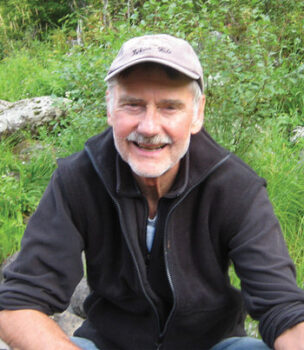
Gary Gildner
Rebecca Sharpe
Author Gary Gildner, who now lives in SaddleBrooke, has added How I Married Michele, a collection of personal essays, to his biography.
Recipient of the National Magazine Award for Fiction, the Robert Frost Fellowship, plus many other prizes in fiction, poetry, and memoir, Gildner has gathered together 15 essays published over three decades in The New York Times Sunday Magazine, New Letters, The Massachusetts Review, Confrontation, and elsewhere.
Novelist Maureen McCoy, author of Junebug, says, “Each essay is a gem, a dazzler.”
The title essay focuses on a student in Gildner’s poetry class at Drake University. She sat quietly in the back row all semester. Twenty years later, meeting again, they got married. This essay tells what happened in between and received notable honors in the annual Best American Essays.
“Juventútem Meam” is about Gildner’s coming of age at a Catholic school where he learns Latin and is introduced to football in the school’s bomb shelter by exchanging punches with his best friend.
In “Ray,” the setting is Michigan State. He and his roommate Raymond Andrews, the future author of Baby Sweet’s and other African-American novels, teach each other about “people from high, low, and in-between stations… their lives rescued by panache or stalled in irony.” At MSU, Gildner also boxed with fellow Spartan, Chuck Davey, an Olympic gold medalist who challenged Kid Gavilan for the World Welterweight title.
During the Cold War, Gildner lived behind the Iron Curtain as a Fulbright professor, teaching American literature at the University of Warsaw. He also coached the Warsaw Sparks—the only baseball team in Poland not sponsored by the Communist Party—and taught them how to win. His essay about that experience and being hounded by the Communist secret police led to writing his popular memoir, The Warsaw Sparks.
Three years later, on another Fulbright, he taught in Czechoslovakia when the country was splitting in half. He was inspired to write “Where the Dog is Buried,” which was a local expression that meant “where the truth begins.”
Other essays in How I Married Michele concern 9/11 (which happened while he was on a book tour), tearing down his massive barn with a crowbar when he lived in Idaho’s Clearwater Mountains, and meeting a cougar while on his knees pulling up thistles in his corral.
Gildner has been writer-in-residence at Reed College, Davidson College, Randolph College for Women, his alma mater Michigan State, Seattle University, and Drake. He has given readings of his work at many colleges, at the Library of Congress, New York’s famed 92nd Street Y, the Manhattan Theatre Club, the legendary Shakespeare and Company bookstore in Paris when he lived in Paris, and on the ferry crossing Lake Michigan.
How I Married Michele, his 23rd book, is available from Amazon, the University of Arkansas Press, or any good bookstore.
